Free time activities
| Website: | QUA-LiS NRW |
| Kurs: | Hobbies_alt |
| Buch: | Free time activities |
| Gedruckt von: | Gast |
| Datum: | Montag, 15. Dezember 2025 |
Beschreibung
1. Vocabulary - Free time activities
| Picture | English | German | In context | Notes |
|---|---|---|---|---|
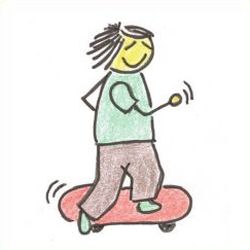 |
to go skateboarding |
Skateboard fahren | Akira likes to go skateboarding with his friends. | Write something that helps you to learn. |
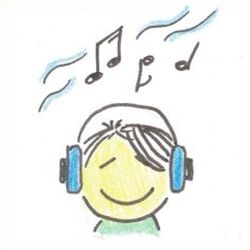 |
to listen to music |
Musik hören | In the evening Akira listens to his favourite music. | |
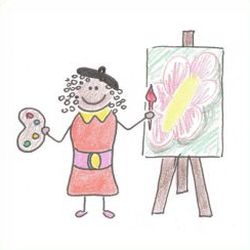 |
to paint pictures |
Bilder malen (mit Pinsel und Farbe) | Every Sunday Joyce paints pictures in the park. | |
 |
to draw |
zeichnen (mit Bleistift oder Buntstiften) | After school she sometimes draws pictures. | |
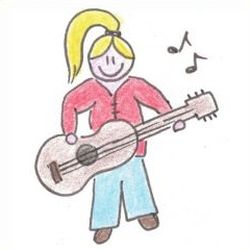 |
to play the guitar |
Gitarre spielen | Nina plays the guitar in the school band. | |
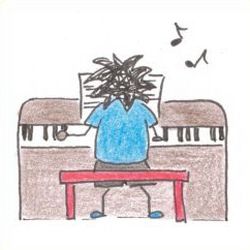 |
to play the piano |
Klavier spielen | Noah likes to play the piano. | |
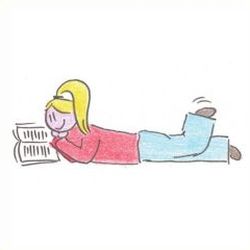 |
to read a book |
ein Buch lesen | Nina reads a book in the evening. | |
 |
to sing |
singen | The children sing a song. | |
 |
to swim |
schwimmen | Joyce swims in the sea. | |
| to chat with a friend |
mit einer Freundin / einem Freund chatten | Noah chats with his friends every Sunday. | ||
| to dance |
tanzen | Joyce dances with Akira. | ||
| to go for a walk |
spazieren gehen | They go for a walk in the park. | ||
| to play computer games |
Computerspiele spielen | The children play computer games in the evening. | ||
| to play football |
Fußball spielen | Nina and Noah play football at school. | ||
| to play table tennis |
Tischtennis spielen | The boys play table tennis at home. | ||
| to take photos |
Fotos machen | Joyce takes nice photos. |
1.1. Dialogue Cards - Free time activities
1.2. Flashcards - Free time activities
1.3. Word grid
Can you find the English translation of the sports words?
Kannst du die englische Übersetzung für die Sport-Vokabeln finden?
learningapps.org: Cookies
1.4. Crossword
Complete the crossword with the correct words.
Vervollständige das Kreuzworträtsel mit den richtigen Wörtern.
learningapps.org: Cookies
1.5. Dictation
1.6. Find pairs**
Here you can find some new words about sports.
Hier kannst du einige neue Worte zum Sport finden.
learningapps.org: Cookies
1.7. Paraphrasing (optional)
Erkläre drei Wörter aus dieser Lektion für das "dictionary".
Führe folgende Schritte aus:
Schritt 1: Lies zwei oder drei Einträge im "dictionary" als Beispiel.
Schritt 2: Finde Worte, die zum Thema gehören, aber noch nicht im "dictionary" stehen.
Schritt 3: Erstelle einen neuen Eintrag für die Kategorie "Hobbies".
Schritt 4: Schreibe das englische Wort und die deutsche Übersetzung in den Titel.
Schritt 5: Erkläre das Wort im "dictionary".
Schritt 6: Schreibe einen Beispielsatz mit dem Wort.
Extra-Schritt (kreativ): Wenn du möchtest, kannst du ein Bild ergänzen. Du kannst etwas zeichnen oder ein Foto machen.
2. Creative task
Draw pictures of 3 more sports activities in your folder. Find the correct English words on the internet or in a dictionary and write them under the pictures.
Zeichne Bilder von 3 weiteren sportlichen Aktivitäten in dein Heft. Finde die richtigen englischen Wörter im Internet oder in einem Wörterbuch und schreibe sie unter die Bilder.
3. Text: Your favourite sport
Write a text about your favourite sport in your folder. Try to answer the following questions:
Schreibe einen Text über deinen Lieblingssport in dein Heft. Versuche, die folgenden Fragen zu beantworten.
- What is the sport called?
- Do you practice it alone or in a team?
- How many people are in the team?
- Do you need special clothes?
- Why do you like the sport?
My favourite sport is swimming. I practice it alone but sometimes I take part in a competition.
I go swimming in the swimming pool every Tuesday and I wear my red swimsuit.
I like swimming because it is so easy to move in the water.
4. "Akira's weekend"
At the weekend, the friends went to the park.
What did they do? Talk with a partner about the pictures or write into your notebook.
Am Wochenende gingen die Freundinnen und Freunde in den Park.
Was haben sie gemacht? Sprich mit einer Partnerin oder einem Partner über die Bilder oder schreibe in dein Heft.
On Saturday ...
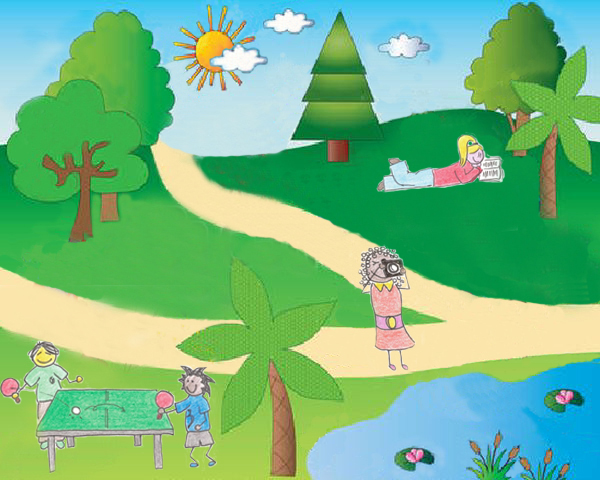
Where were the friends at the weekend?
What was the weather like?
It was cloudy.
It was sunny.
What did they do?
They played table tennis.
(to) read - read
(to) take - took
(to) go - went
(to) win - won
On Sunday ...
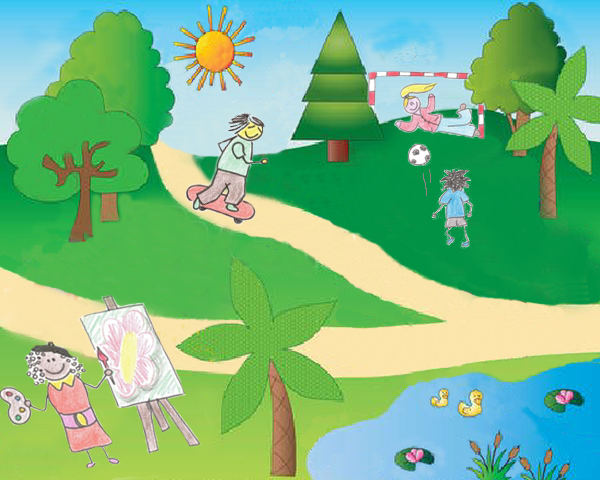
It was fun / great / exciting.
Was it exciting to play ...?
Yes, it was.
No, it wasn't
Did Nina play football?
Did Joyce swim?
Yes, she did.
No, she didn't.
4.2. Fill in the missing words
Look at the pictures again and fill in the missing words.
Schau dir die Bilder noch einmal an und ergänze die fehlenden Wörter.
 |
<- Saturday | Sunday -> |  |
|---|
learningapps.org: Cookies
5. Reading "Nina's postcard"
1. Listen and read the text:
Here you can listen to the text:
Hier kannst du den Text anhören:
Slow version: Langsame Version:
Read the text quickly. Afterwards you have to decide, which pictures go with the story.
Lies dir die Postkarte schnell durch. Nachher musst du entscheiden, welche Bilder dazu passen.
|
Hello Grandma, How are you? Let me tell you about my last weekend: On Sunday the weather was very good and I went to the park. I wanted to watch the ducks on the lake, to lie in the sun and to read a book. But then my friend Noah came along. He had a football and asked me to play with him. We started to play and I was the goalkeeper. However, after some time it got boring. Then we saw our other friends. Joyce was painting a picture and Akira was skateboarding. We asked them to join in and we had a football match all together. That was a lot of fun. After the game we sat under the big tree and ate some ice-cream. I hope you also had a nice weekend. Love, Nina |
5.1. Find the correct pictures
5.2. Match the pairs
Match the text and the correct picture.
Verbinde den Text mit dem richtigen Bild.
learningapps.org: Cookies
5.3. Text order
Read the text and drag the text blocks into the correct order!
Lies den Text und ziehe die Textblöcke in die richtige Reihenfolge!
learningapps.org: Cookies
5.4. Read the text again
Read the text again. Can you find three mistakes?
Lies den Text noch einmal. Kannst du drei Fehler finden?
|
Hello Grandma, How are you? Let me tell you about my last weekend: On Sunday the weather was very good and I went to the swimming pool. I wanted to watch the ducks on the lake, to lie in the sun and to read a book. But then my friend Noah came along. He had a football and asked me to play with him. We started to play and I was the goalkeeper. However, after some time it got boring. Then we saw our other friends. Joyce was taking photos and Akira was skateboarding. We asked them to join in and we had a football match all together. That was a lot of fun. After the game we sat under the big tree and ate pizza. I hope you also has a nice weekend. Love, Nina |
6. Your postcard
Write a postcard to someone in your class or to your teacher. Tell that person what you did on your last weekend. You may also draw a picture. Send your postcard to that person per e-mail. Maybe you will get an answer.
Schreibe eine Postkarte an jemanden aus deiner Klasse oder an deine Lehrerin/deinen Lehrer. Berichte der Person, was du am letzten Wochenende gemacht hast. Du darfst auch ein Bild dazu zeichnen. Schicke deine Postkarte per E-MAil an diese Person. Vielleicht bekommst du eine Antwort.
Hello Deniz,
Last weekend it was very ☀️. I went to the zoo by 🚲. My friend Akira came with me. We saw many animals, for example giraffes 🦒 and lions 🦁.
In the evening we went to a concert. The school band played powerful songs 🎵.
Love, Mona
7. Grammar - Simple Past
Simple Past (Vergangenheit)
📝 Regel:
Mit dem simple past kannst du sagen, was jemand in der Vergangenheit (yesterday, last weekend ...) getan hat.
💡 Bildung:
regelmäßige Verben (regular Verbs)
| Verb | + ed |
Es gibt keinen Unterschied bei den verschiedenen Personen.
✏️ Example:
| Singular | |
|---|---|
| Yesterday I watched TV. |
Gestern habe ich Fernsehen geguckt. |
| You learned English last Friday. | Letzten Freitag hast du Englisch gelernt. |
| Last weekend Noah (he) played football. | Letztes Wochenende hat Noah (er) Fußball gespielt. |
| Last Saturday Joyce (she) painted a picture. | Letzten Samstag hat Joyce (sie) ein Bild gemalt. |
| Last week a squirrel (it) watched Joyce. | Letzte Woche hat ein Eichhörnchen (es) Joyce beobachtet. |
| Plural | |
| Yesterday we learned English. | Gestern haben wir Englisch gelernt. |
| Last weekend you played football. | Letztes Wochenende habt ihr Fußball gespielt. |
| Last Monday the pupils (they) talked about music. | Letzten Montag haben die Schüler (sie) über Musik gesprochen. |
unregelmäßige Verben (irregular Verbs)
Die zweite Form des Verbs muss auswendig gelernt werden. Du findest sie in der Liste "Irregular Verbs " in diesem Kurs und in deinem Lehrwerk.
✏️ Example:
| Singular | |
|---|---|
| Yesterday I read a book. | Gestern habe ich ein Buch gelesen. |
| You went to the park last Friday. | Letzten Freitag bist du in den Park gegangen. |
| Last weekend Noah (he) swam in the lake. | Letztes Wochenende ist Noah (er) im See geschwommen. |
| Last Saturday Joyce (she) drew a picture. | Letzten Samstag hat Joyce (sie) ein Bild gezeichnet. |
| Last week squirrel (It) saw Joyce. | Letzte Woche hat ein Eichhörnchen (es) Joyce gesehen. |
| Plural | |
| Yesterday we made music. | Gestern haben wir Musik gemacht. |
| Last weekend you did your homework. | Letztes Wochenende habt ihr eure Hausaufgaben gemacht. |
| Last Monday they (the pupils) went to the park. | Letzten Montag sind sie (die Schüler) in den Park gegangen. |
Verneinung:
Bei der Verneinung wird didn't vor das Verb in der Grundform gestellt:
| I danced | I didn't dance | Ich habe nicht getanzt. |
| He swam | He didn't swim | Er ist nicht geschwommen. |
⚠️ Aufgepasst:
Bei regelmäßigen Verben, die auf -e enden, wird nur ein -d angehängt.
z. B.
| to like | I liked | ich habe gemocht |
| to dance | she danced | sie hat getanzt |
📌 Merke:
Das Verb "to be" hat zwei unterschiedliche Vergangenheitsformen, "was" und "were". Die Verwendung ist abhängig von der Person.
| I was | ich war |
| you were | du warst |
| he/she/it was | er/sie/es war |
| we were | wir waren |
| you were | ihr wart |
| they were | sie waren |
💥 Signalwörter:
Yesterday, last week, last Monday, last year
7.1. Regular Verbs
What happened last weekend? Write sentences in the Simple Past.
Was passierte letztes Wochenende? Schreibe Sätze im Simple Past!
Example: Akira and Noah played table tennis.
learningapps.org: Cookies
7.2. Irregular verbs
Here you find your first list of irregular verbs.
Hier findest du deine erste Liste von unregelmäßigen Verben.
| Infinitive | Simple Past | German | Note |
|---|---|---|---|
| to go |
went |
gehen | Write something that helps you to learn. |
| to read |
read |
lesen | |
| to sing |
sang |
singen | |
| to swim |
swam |
schwimmen | |
| to take |
took |
nehmen | |
| to draw |
drew |
zeichen | |
| to do |
did |
tun | |
| to see |
saw |
sehen | |
| to make |
made |
machen |
7.3. Match the verbs
learningapps.org: Cookies
7.4. Fill in the verb
learningapps.org: Cookies
7.5. True or false?
learningapps.org: Cookies